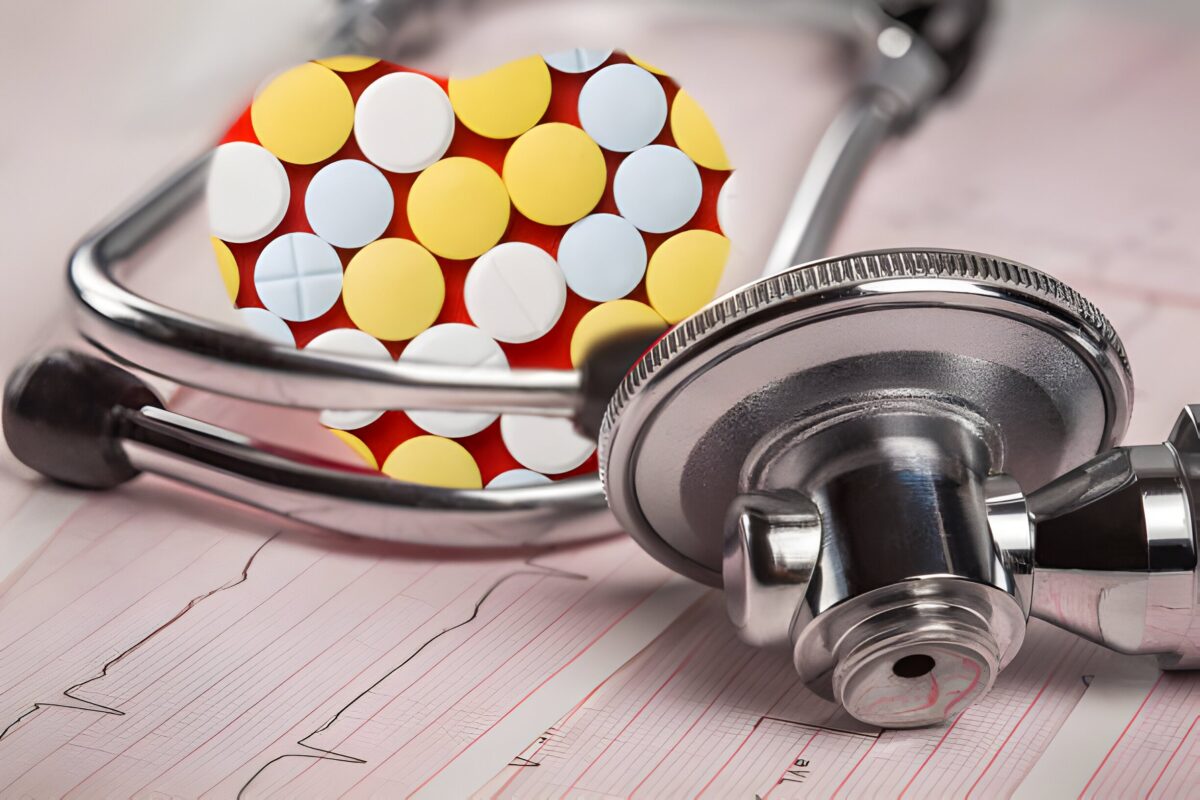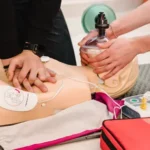Commonly used medications in Advanced Cardiovascular Life Support (ACLS) include epinephrine, amiodarone, atropine, and lidocaine. Epinephrine is crucial because of its vasoconstrictive effects. It improves the flow of blood to the body’s organs during cardiac arrest. Amiodarone stabilizes irregular rhythms of the heart like ventricular fibrillation.
Next, atropine is used for symptomatic bradycardia to increase heart rate. Lidocaine helps treat ventricular arrhythmias. These medications are given by following specific ACLS algorithms. These algorithms are designed to optimize patient outcomes. So, let us explore the role of these ACLS medications and how they are administered by healthcare providers.
What are ACLS medications?
ACLS medications are a major component of Advanced Cardiovascular Life Support protocols. These medications aim to stabilize cardiac rhythms and support circulation during emergencies. Checkout the complete list of all the medications used in ACLS in the table below
| Medication | Purpose |
| Epinephrine | Vasoconstriction to improve blood flow during cardiac arrest |
| Amiodarone | Stabilization of irregular heart rhythms, like ventricular fibrillation |
| Atropine | Used for symptomatic bradycardia to increase heart rate |
| Lidocaine | Treatment of ventricular arrhythmias |
| Aspirin | Reduces clot formation, used in acute coronary syndromes |
| Nitroglycerin | Vasodilation to reduce cardiac workload and chest pain in angina and acute coronary syndromes |
| Adenosine | Treatment of supraventricular tachycardia (SVT) by slowing conduction through the AV node |
| Dopamine | Increases heart rate and blood pressure in hypotensive states |
| Magnesium sulfate | Treatment of torsades de pointes, ventricular arrhythmias associated with hypomagnesemia |
| Sodium bicarbonate | Used in acidosis associated with cardiac arrest and hyperkalemia |
| Calcium chloride | May be used in the treatment of calcium channel blocker overdose and hyperkalemia |
These medications are essential in managing various cardiac emergencies according to ACLS guidelines.
Which medications are commonly used in ACLS protocols?
ACLS protocols rely on specific medications to manage critical cardiac events effectively. Commonly used top five medications include:
- Epinephrine
- Amiodarone
- Atropine
- Lidocaine
- Aspirin
Read more: ACLS certification: What is it, and who needs it?
What are the dosages and administration techniques for ACLS medications?
Understanding the dosages and administration techniques is crucial for the effective application of ACLS medications. Let us look at the dosages and administration Techniques:
Epinephrine:
It is administered intravenously or via endotracheal tube and is typically a 1 mg dosage every 3-5 minutes during cardiac arrest.
Amiodarone:
Given intravenously as a bolus, with an initial dose of 300 mg for pulseless ventricular tachycardia (VT) or ventricular fibrillation (VF), followed by 150 mg if needed.
Atropine:
Atropine is given intravenously, with an initial dose of 0.5 mg for symptomatic bradycardia, repeated every 3-5 minutes up to 3 mg.
Lidocaine:
Lidocaine is administered to the patient intravenously as a bolus at an initial dose of 1-1.5 mg/kg for ventricular arrhythmias, with additional doses if needed.
Aspirin:
Given orally, chewed for rapid absorption, at doses of 160-325 mg in suspected acute coronary syndromes.
What are the side effects of ACLS medications?
ACLS medications are critical in managing cardiac emergencies but can come with potential side effects. Here is a list of some commonly used ACLS medications along with their side effects:
Epinephrine
- Increased heart rate (tachycardia)
- High blood pressure (hypertension)
- Anxiety or nervousness
- Tremors
- Headache
Amiodarone
- Low blood pressure (hypotension)
- Bradycardia (slow heart rate)
- Pulmonary toxicity
- Thyroid dysfunction
- Liver enzyme abnormalities
Atropine
- Dry mouth
- Blurred vision
- Urinary retention
- Tachycardia
- Constipation
Adenosine
- Facial flushing
- Chest pain or discomfort
- Shortness of breath
- Light-headedness
- Nausea
Lidocaine
- Dizziness
- Drowsiness
- Confusion
- Seizures
- Nausea
Magnesium sulfate
- Flushing
- Sweating
- Low blood pressure (hypotension)
- Respiratory depression
- Hyporeflexia
Dopamine
- Increased heart rate (tachycardia)
- High blood pressure (hypertension)
- Arrhythmias
- Nausea and vomiting
- Anxiety
These side effects should be monitored closely during ACLS administration to ensure patient safety .
How do healthcare providers administer ACLS medications effectively?
Effective administration of ACLS medications is crucial for optimal patient outcomes during emergencies. Learn how healthcare providers administer these medications effectively.
Proper Training:
Healthcare providers undergo regular training to ensure familiarity with medication dosages, routes, and indications.
Clear Communication:
Effective communication among team members ensures timely administration and prevents errors.
Adherence to Protocols:
Following ACLS algorithms healthcare providers precisely guide medication selection and dosing based on patient presentation.
Drug Preparation:
Careful preparation of medications, including proper dilution and labeling, minimizes errors during administration.
Correct Route:
Administering medications via the appropriate route (e.g., intravenous, endotracheal) ensures rapid absorption and efficacy.
Monitoring Response:
Continuous monitoring of patient response allows healthcare providers for timely adjustments in medication administration as needed.
Read more: Importance of Learning ACLS
Conclusion
ACLS medications are crucial for saving lives during cardiac emergencies. By following protocols, administering drugs correctly, and communicating with efficacy, healthcare providers ensure the best possible outcomes for patients in distress. With proper training and adherence to guidelines, these medications play a vital role in modern emergency care. This is what makes them important in every healthcare setting.
Resources:






